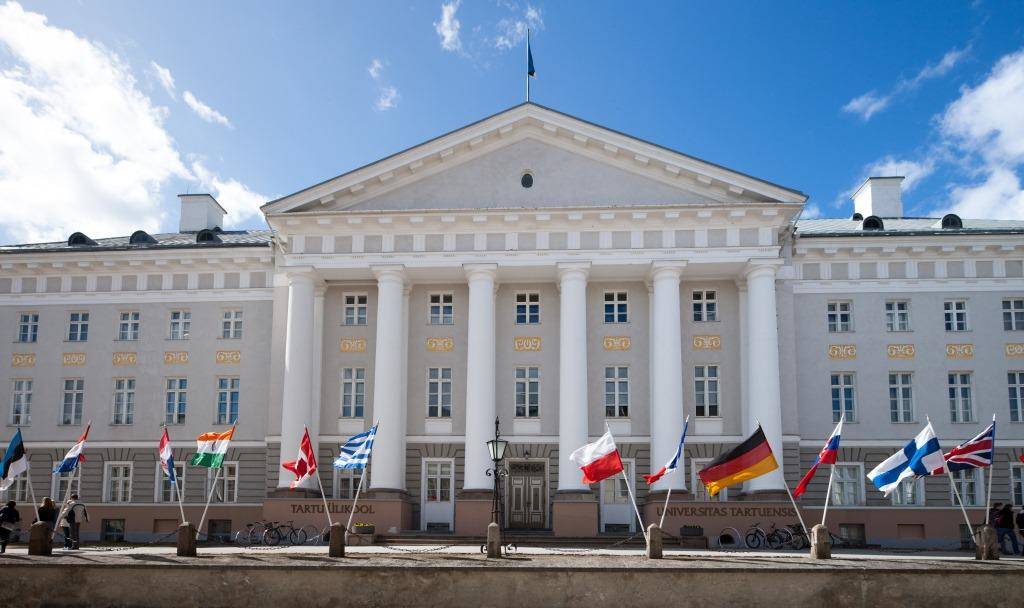Abhishek Mathur, an Indian expat living and studying in Estonia, writes that the recent talk by the populists in the Estonian government about banning students from non-EU countries on the grounds of health concerns doesn’t make sense as nationality and citizenship do not guarantee prevention or protection from a deadly virus.
My journey to Estonia
Estonia is regarded as an up and coming nation on many accounts, globally. Of course, it is one of the rising stars in the European Union, being one of the best-managed economies of the region. It has carved out the proverbial niche in the world of information technology development and for its advancement in the making of a digital society.
Armed with this knowledge and the fact that a couple of my friends and acquaintances had nothing but praise for this country, I moved to Estonia in 2019, from my home country, India. I had the full support of my friends, family and the blessings of my employer to join a unique one-year information technology law master’s degree programme at the prestigious University of Tartu.
The programme is, indeed, run very efficiently and had a very eclectic mix of lawyers not only from Estonia but from places as far as Brazil, Colombia, Kazakhstan and Sri Lanka. The old favourites like Ukraine and erstwhile Soviet republics like Moldova feature in the list too.

I know, as a student of languages and history, that this beautiful land of cultured people has shown remarkable perseverance through tragic times, but now I am puzzled how the voice of the brave and resilient population of Estonia is getting cacophonous by an occasional shrill voice targeted against “foreign” students, which is a euphemism for students from non-EU countries.
Worrying news
There have been previous news items in the press (I admit, I only read the English versions of the websites) where one of the key partners (the far-right Estonian Conservative People’s Party or EKRE – editor) in the present government has actually proposed banning the entry of partners/spouses of foreign students and taking away their right to work in Estonia.
While it is debatable what kind of facts are these proposals based on, the intent is not too tough to decipher. It is clearly aiming at satisfying the clamour of that rather small electorate that wants all non-Estonians to go back home, as well as trying to ride on the perceived notion of foreigners taking away jobs meant for the sons of the soil.
The voice got even louder with the news item appearing in the press recently about “third country” students not being “allowed” in Estonia. Ostensibly this has been done to prevent the flow of the coronavirus pandemic and its spread from unknown places into Estonia – another point that needs the corroboration of health experts – but the news itself is quite shocking.
As per common knowledge, the spread of the virus has been the severest in Italy, Spain, the UK, the US and some other EU countries such as Germany. There are multiple theories about the real reason of the devastating effects of the virus in these countries. These range from late government action, non-availability of proper medical facilities, an aging population and that the virus itself was of a mutating kind and took a different and deadlier form in these countries causing numerous deaths.
But my argument is not to discuss the scientific or political reasons here. As a legal and law-abiding resident of Estonia, who just happens to be from a so-called “third country”, to me this blanket statement of banning students from the non-EU countries appears to be prima facie, discriminatory and not based on facts. The intention appears to be to allow certain people, while at the same time “disallowing” certain others based on their nationality.

Facts vs political fiction
Each country retains all rights to protect its borders and territory from any person or power that is a threat to its existence. No doubt about that. However, is this pandemic situation the correct forum to banish those who are not from the EU?
In my reading of the situation, the correct approach must be to check the health condition of the person applying for entry into Estonia and follow the proper medical advice, including all precautions and quarantine procedures and then move to business as usual. How does one’s nationality affect one’s proclivity to catch the coronavirus, or some other disease, is beyond comprehension.
In fact, looking at a multicultural Europe, there will be many people who are not ethnic Europeans but hold EU citizenship and vice versa. Nationality and citizenship do not guarantee prevention or protection from a deadly virus.
The decision to ban entry on the basis of nationality is a very reactionary thought to label all non-EU countries being potential carriers of the virus while giving a clean chit to the EU or the UK or US or Australian nationals, without screening them for COVID-19. Deciding the inflow of any foreigner based on one’s health must be the prerogative of the ministry of health and not that of a politician.
I would not take on the mantle of an economist here but, as a legal resident of this lovely country now, I would certainly like to see some credible evidence based on numbers to support any claims, regardless on which side of political spectrum one belongs to. Fairness is one of the cornerstones of the Estonian society, polity and culture and I would really like this to stay the same so that people like me can continue to come here and experience a better life by gradually integrating within Estonia’s economy and society.
As far as some objective studies claim, foreign students are a net addition to the Estonian economy and end up adding immensely to the state’s coffers. Any step to prevent this benefit to Estonia would be regressive for the Estonian economy. As the world moves towards being a more and more integrated place, foreign students add a lot of vibrance, experience and colour to Estonian society, culture and economy.

At any rate, the non-EU foreign students are over 60% of the total foreign students’ population, effectively being around 3,500 and, even in a relatively small country like Estonia, this is not exactly a huge number. Even with this number foreign students and graduates contribute over ten million euros in taxes, annually.
Hopes abound
And yes, how can I forget the main reason of writing this piece? Once I landed in Estonia on a morning flight last summer, I knew this place was special.
I was warmly welcomed into the Estonian university system and by my new Estonian acquaintances and friends. I got to learn the legal aspects of new age technology and I got the confidence to start on my own and be a net contributor to the Estonian exchequer. I hope my plan to enrich the Estonian society is a success.
I know the fall in one’s fortunes can make the political winds blow in directions hitherto unknown but as has been proved time and again, I believe this is only a temporary phase that will subside when the economy recovers in due course of time. I still believe that, even though the recent spate of articles has made non-EU nationals like me a bit uncomfortable, the collective wisdom of the Estonian society will prevail towards making Estonia more progressive and forward-looking.
The opinions in this article are those of the author. Cover: Prospective international students of Tallinn University in 2016. The image is illustrative. Photo by Tallinn University.

